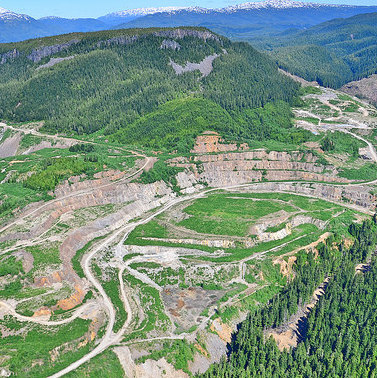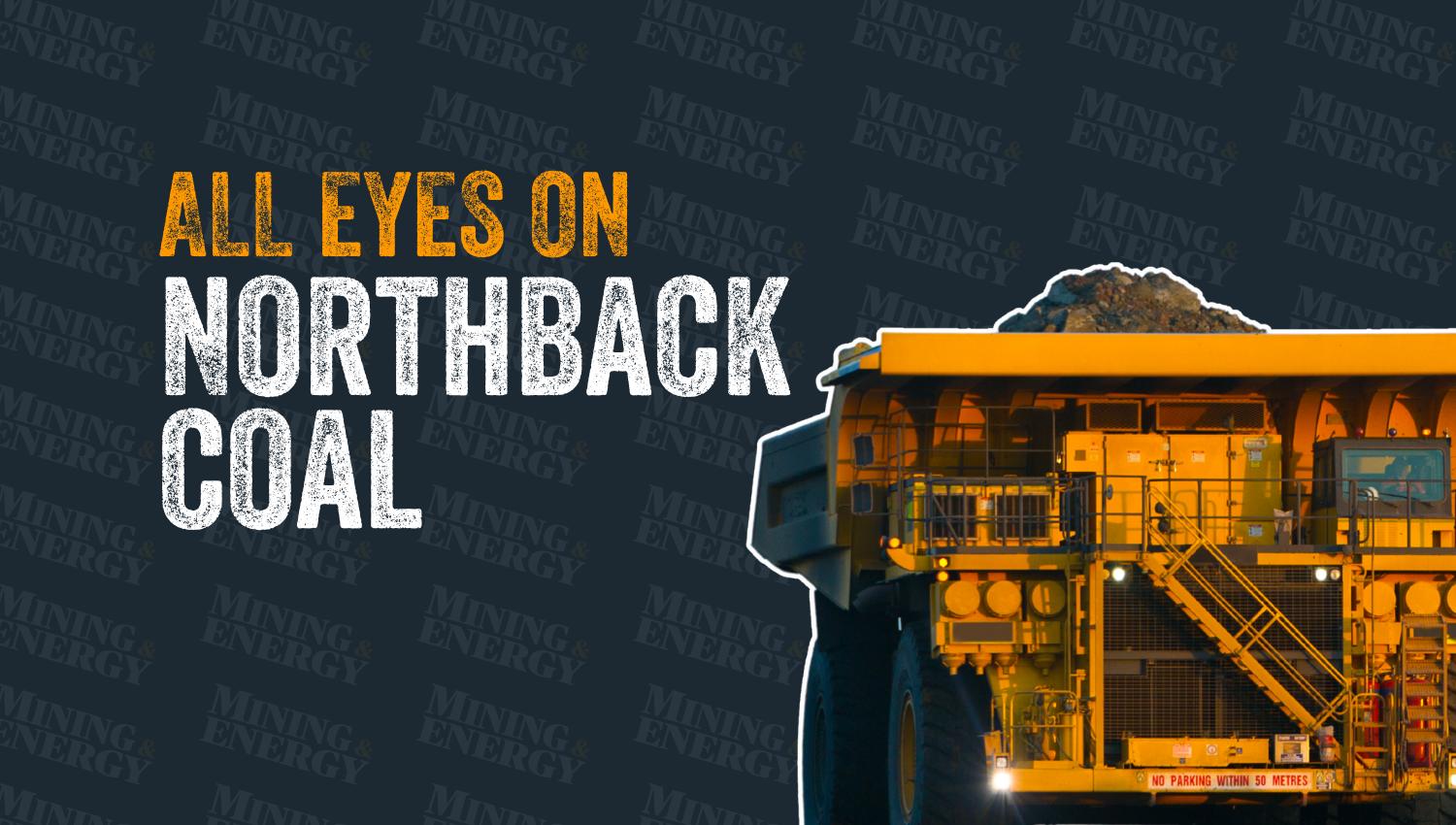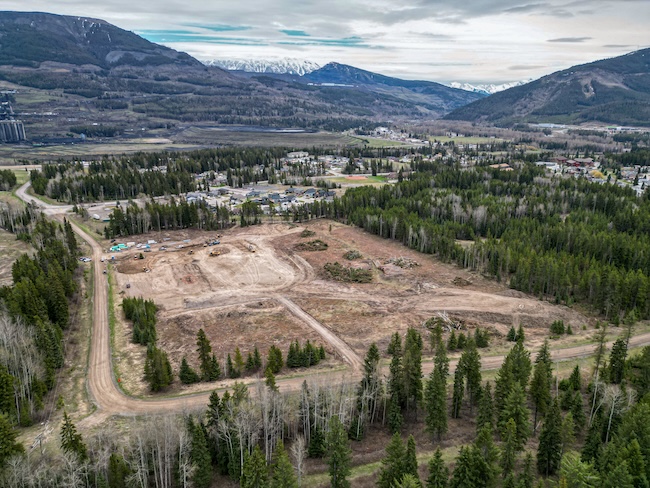Forward thinking is key for Alloycorp Mining, Inc.

Alloycorp's Avanti Kitsault project is located 120 kilometres north of Terrace, B.C. — Photo courtesy Alloycorp Mining Inc. What does it take to buil
Alloycorp's Avanti Kitsault project is located 120 kilometres north of Terrace, B.C. — Photo courtesy Alloycorp Mining Inc.
What does it take to build a mine in a cyclical, price-takers market in 2015? Gordon Bogden, CEO of Alloycorp Mining, Inc., said it’s all about looking forward.
“We have to ask the question ‘What can we do?’ instead of always looking back at how things have been done,” he said. “We have to keep looking ahead and trying new ideas.”
Alloycorp holds a 100 per cent interest in the Avanti Kitsault project in northern British Columbia through its wholly owned subsidiary, Avanti Kitsault Mine Ltd.
The project is a $1-billion molybdenum mine located in the Nass Valley, 120 kilometres north of Terrace. Molybdenum is a key alloying agent used to enhance strength, toughness, and wear and corrosion resistance in steel used in pipelines, storage tanks, bridges and aircraft engines. Its versatility means it plays a significant role in everyday life.
Avanti Kitsault is one of two new mines under construction in B.C. and one of five or six being built in Canada—the aim is to be one of the top four primary molybdenum mines in the world.
Done correctly, every company has the opportunity to make progressive inroads in all areas of mining including today’s most pressing--environmental and community relations.
“We are the first people in these communities and it is often not for 15 years the bigger companies are coming in,” said Bogden. “If we don’t get these relationships right, it makes it harder for the large companies later on.”
Alloycorp’s approach has been a little different when building into Kitsault. “We reached an agreement with the Nisga’a First Nation and we did it in 31 days because we asked the question ‘What is important to you?’ ”
The community immediately responded with a question of its own: “What’s in the water?” Elders in the community remember children playing near effluent in the nearby river, left by a previous landowner.
The parties discussed royalty and business revenue, but then spent an extended amount of time on the question of water quality and the environment.
“In the end, we decided to get drinking water off the site,” said Bogden. “It costs a little more, but it was the right thing to do and it brings the site-specific water quality standard in excess of what is required.
“That kind of thinking isn’t revolutionary; anybody can do it,” he said. “It is just about considering what is important to communities.”
Bogden said the industry is in some ways tarnished by the brush of bad news and the perception that mining is the antiquated, lumbering beast it was 100 years ago.
“Things have changed dramatically and we are looking forward and engaging innovation in these areas,” he said. “We are asking ‘What can we do here as a developing company?’ ”
Innovation is also about technology. Drone mining, for instance—drones fitted with GoPros to survey and collect data—is a huge advantage and is easy to implement. Remote vehicles and 3-D printing on remote sites are also technologies under serious employ that are set to revolutionize the mining industry.
The Avanti Kitsault is running North America’s first RopeCon conveyor system, which is part conveyor belt and part ropeway and combines the benefits of both systems, to span long distances over rough terrain with few support points and large mass flow rates.
The tailings-management berm at Avanti Kitsault uses an asphalt core rather than concrete because the former is more resilient in a seismic event. Besides two power dams in Quebec, this is Canada’s first deployment of this type of system.
“There have been great examples of people doing great things, but we are not yet there collectively as an industry,” said Bogden. “Financing is the lubrication to make it all happen, so you also have to get the capital structure right.”
Alloycorp sells 50 per cent of its product to Thyssen Krupp in Germany through a program for importing raw materials called the German Untied Loan Guarantee Scheme (UFK). It provides a $300-million guarantee towards project development and debt.
In April of this year, Alloycorp changed the engineering team working at Avanti Kitsault and commissioned a technical study focused on how the mine will be constructed.
Graham du Preez, chief financial officer for Alloycorp, said construction activities have ceased pending the front end engineering design study’s results, which will most likely introduce more efficient design techniques. “In light of the fact we changed engineers, there is no sense moving forward until those results are in, or that work could become redundant,” he said.
Prior to April, all scheduled pre-construction activities were completed, including replacement of the Nass River bridge, expansion of the camp facilities on-site, and preliminary earthwork at the plant site and supporting areas.
“We completed all the work we set out to do, and since April the new engineers have been working on ways to improve the design, come up with savings on capital expenditure and present execution strategies to eliminate cost overrun,” said du Preez.
“We are approaching a stage where we will get some key preliminary results and will be sharing those with our financiers.”
The study is expected to be complete by the beginning of October, and once any additional financier requirements are met, push the next stages of the project into 2016.
“Commodity prices and the general market are not ideal,” said du Preez, “but the equity providers and financier support are still in place, and nothing has changed. We are focused on providing our investors with a complete investor package that will provide more certainty on the initial capital expenditure and the different contracting options we can use to eliminate the possibility of cost overruns.”
The project is expected to begin production in 2018. Alloycorp expects to update its National Instrument 43-101 compliant technical report incorporating recent results from an independent review of the project undertaken based on advances in engineering and development. The updated technical report will be targeted for release in late 2015.
“We are weathering the worst of the market storm now and are optimistic for the future,” said du Preez.




